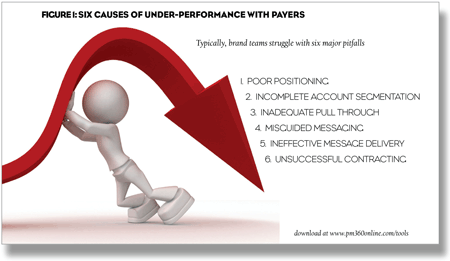PRESCRIPTION IPADS
A new study available from Manhattan Research revealed the latest physician demand: doctors want to access pharma product information and online promotions on their iPads and smartphones.
The research focused on the 87 percent of U.S. physicians who are ePharma physicians, or who use digital channels for pharma resources and for connecting with reps. Among these doctors, there is significant demand for mobile-device access to prescription drug information and promotions.
Physicians want access to online details and presentations about products on their smartphones and iPads “including experiences which include live elements like live video or voice,” said Monique Levy, vice president of research at Manhattan Research, in a statement.
According to the study’s findings, ePharma physicians want to use online resources two-thirds of the time, while relying on offline or print materials only one-third of the time. Additionally, 45 percent of ePharma physicians would like to access pharma product information on their smartphone or iPad, and 52 percent said it was important for them to be able to access the same source of pharma information across all of their devices, including PCs, smartphones and tablets.
Other forward-thinking opportunities explored in the study include tablet-assisted face-to-face sales interactions, online customer service, patient-education options, financial assistance resources and online sampling.
The study also explores the various online routes that ePharma physicians take to research pharmaceuticals and investigates how these online pathways vary depending on product maturity. Competitive metrics are also provided by the study for leading manufacturers including AstraZeneca, Merck, Pfizer, Shire and more. —Lauren Genovesi
KEEPING IT OLD SCHOOL
According to SK&A’s Marketing Channel Utilization Report for the first half of 2011, direct mail was still the leading medium for reaching healthcare practitioners. Snail mail accounted for 61 percent of the 189 million promotions shipped. The other channels were significantly behind, with the closest channel, analytics, responsible for less than 17 percent of records. The percentage of records transmitted via email was around 2 percent. —L.G.

PLUGGING THE DONUT HOLE
The U.S. Department of Health and Human Services announced that Medicare drug premiums will not increase in 2012. In fact, the cost of the average Medicare prescription drug plan premium in 2012 will be about $30, down slightly from $30.76, the average premium in 2011.
Additional HHS data indicates that 17 million people with Medicare have received free preventative services this year, and 900,000 Medicare recipients who hit the prescription drug donut hole received a 50 percent discount on their prescription drugs.
“The Affordable Care Act is delivering on its promise of better health care for people with Medicare,” said HHS secretary Kathleen Sebelius in a statement. People with Original Medicare can receive preventative care and an annual wellness visit at no additional cost under the Affordable Care Act.
Medicare beneficiaries with coverage gaps have received increasing discounts on covered drugs in the donut hole. Medicare beneficiaries appear to be taking overall advantage of the new benefits. Between January and July of 2011, 51.5 percent of patients with Original Medicare received one or more free preventive services, and 1,061,780 Americans with Original Medicare took advantage of Medicare’s new Annual Wellness Visit. Through the end of June, 899,000 Americans with Medicare saved with the 50 percent discount on covered brand name drugs in the Medicare Part D donut hole. Out-of-pocket savings on drug costs for Medicare beneficiaries are also way up, with seniors in the donut hole saving over $200 million in the month of June alone.
According to an article from The Washington Post, “It is estimated that the drug benefit saved Medicare an average of $1,200 a year for each senior who had no coverage or inadequate benefits before the program was launched in 2006. Most of that came from reduced hospital and nursing home costs, as prescriptions helped to keep people healthier.”—L.G. 28
FDA UPDATE
FDA’s Division of Drug Marketing, Advertising, and Communication (DDMAC) warned ISTA Pharmaceuticals (Irvine, CA), makers of Bromday (bromfenac solution for treating postoperative inflammation following cataract surgery), that a flyer for detail reps omitted warnings and might mislead doctors about the products’ required dosing schedule.
An FDA advisory panel voted unanimously in favor of Humanitarian Device Exemption (HDE) approval of Excor pediatric ventricular assist device for use in the United States. Berlin Heart develops, produces, and distributes implantable and external ventricular assist devices for patients of every age and body size.
The FDA tentatively approved e-cue (epinephrine), an auto-injector used for emergency treatment of allergic reactions including anaphylaxis. Final FDA approval of Intelliject’s drug depends on the resolution of all exclusivity or patent challenges.
The FDA approved AstraZeneca’s blood-thinning drug Brilinta (ticagrelor) to reduce occurrences of cardiovascular death and heart attack in patients with acute coronary syndromes (ACS). Other approvals included Complera (emtricitabine, rilpivirine and tenofovir disoproxil fumarate), Gilead Sciences’ fixed dose combination of three HIV-1 reverse transcriptase inhibitors, and a variety of generic formulations of the anti-seizure drug l evetiracetam: Levetiracetam I.V. Injection (Innopharma), Levetiracetam Oral Solution (Apotex) and Levetiracetam Extended-Release Tablets, (Anchen Pharmaceuticals).
The FDA announced the approval of the first specific treatment for scorpion stings in the United States. Anascorp (centruroides Immune F(ab’)2 (Equine) Injection) was developed by Rare Disease Therapeutics.
Merrimack Pharmaceuticals’ MM-398, a novel, stable nanotherapeutic encapsulation of the marketed chemotherapy drug Irinotecan, was granted orphan drug status from the FDA for the treatment of pancreatic cancer. The orphan drug designation is intended to enable the safe treatment, diagnosis or prevention of rare diseases and disorders that affect fewer than 200,000 people in the United States.
Hospira’s gemcitabine injection received FDA approval. The solution form of the oncology medication Gemzar is expected to be launched in early September. —L.G.



